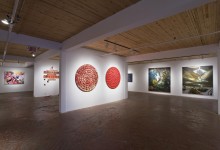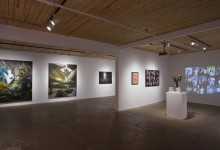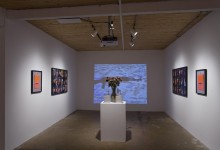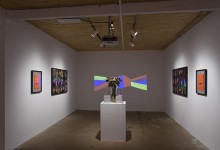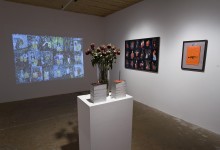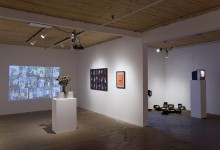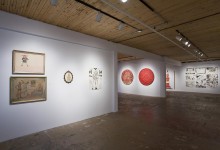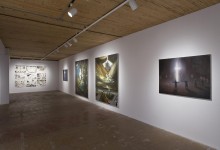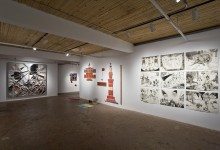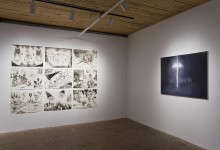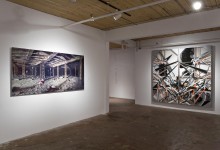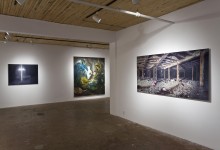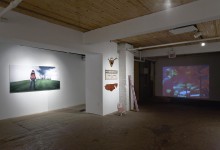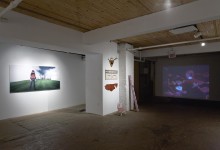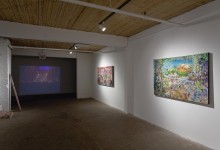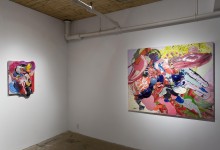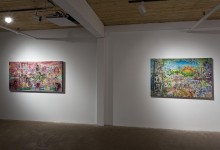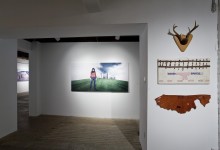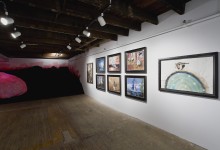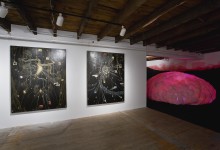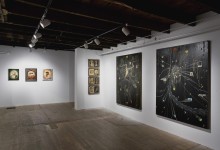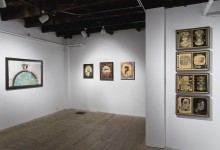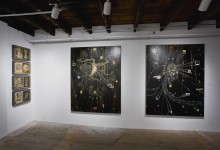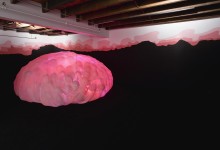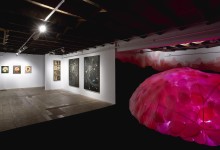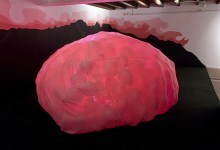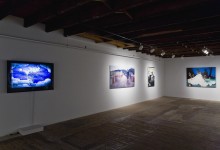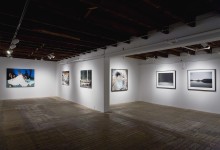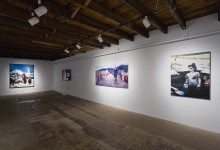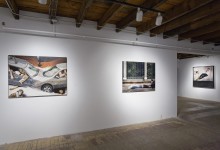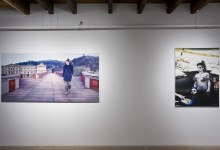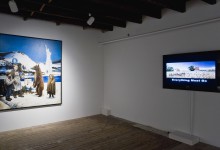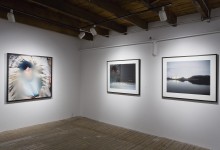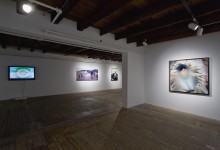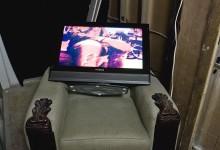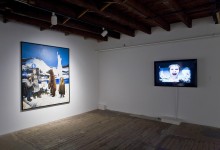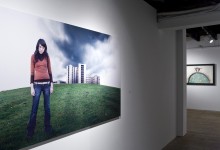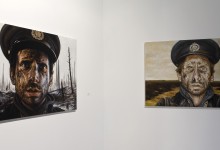Davis Liss: Songs of the Apocalypse
Curator: David Liss
Text by David Liss
The exhibition Songs of the Apocalypse is directly inspired by William Blake’s Songs of Innocence and Songs of Experience. First published together around 1794, these were intended to reflect upon the passage from what Blake considered to be the innocence of childhood to the experienced state of adulthood, a transition he characterized as a shift from a natural state to one of estrangement from nature. If, within Blake’s complex lexicon, the rose represents innocence and the invisible worm the life-destroying infection, estrangement is the symptom of the corrupting forces of materialism and our terminal fear of mortality.
Songs of the Apocalypse is the third in a series of group exhibitions that I’ve curated within the last two years that have, through the visions of over 30 ar tists, presented diverse viewpoints and reflections upon the current state of the world and the physical and psychological characteristics of those that inhabit it now – namely, us.
From the Bhagavad Gita to the Bible, from Revelation to Dante’s Inferno, from the prognostica-tions of Nostradamus to Blake’s poetic phrasings, from Bosch to Black Sabbath, from modern and postmodern eschatological theories to sci-fi Armageddon scenarios to the ver y real threat of nuclear annihilation, there is nothing so dramatic and inspirational to ponder and express than the End of Ever ything. In fact, this “apocalyptic” mindset, this invisible worm, may well be a perfectly natural aspect of our consciousness, a by-product of our awareness of our own mor tality. Death is an integral par t of life. A potential demise of our entire species, while tragic, at least to us, may well be consistent with the natural order of things.
Granted, depicting apocalypse may not be wholly specific to the themes and intentions of all of the ar tists and the ar twork included in this exhibition. Never theless, and considered together, the ar twork selected here, to var ying degrees dark, disturbing, mysterious, exuberant or even celebrator y and humorous, evoke a sense of ominous foreboding, directly in some cases and perhaps obliquely in others. Songs of the Apocalypse is the worm made visible in the night; the infection that infiltrates the rose; the virus of apocalyptic consciousness; the howling storm; a gleaming poem; the visual equivalent of the soundtrack for the end of time.


